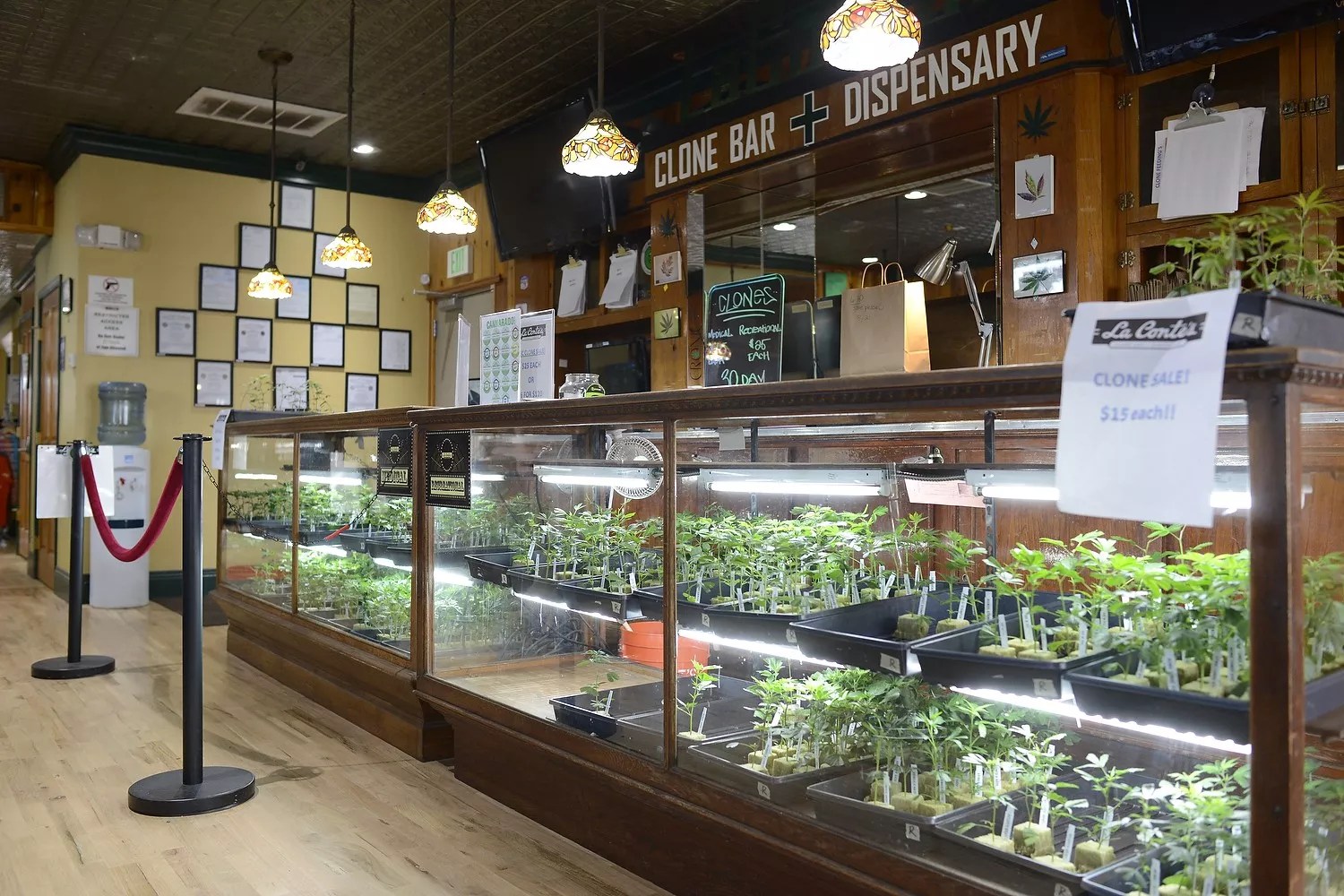
Scott Lentz

Audio By Carbonatix
A group of parents believe that Mayor-Elect Mike Johnston’s business licensing transition committee has too much influence from the marijuana industry.
Last month, Johnston announced 28 different committees to help his transition into office on July 17, including an Excise & Licenses committee charged with evaluating and recommending changes for Denver’s business licensing processes. Although the Denver Department of Excise & Licenses oversees more than 100 kinds of businesses, the makeup of the committee has too many ties to marijuana, according to One Chance to Grow Up, an organization that lobbies for commercial marijuana restrictions to protect children.
Of the committee’s nine members, five of them work or have worked in the marijuana industry: cannabis attorney Christian Sederberg, dispensary owner Wanda James, Marijuana Industry Group government affairs director Kara Miller, marijuana industry executive (and former legislator) Dan Pabon and committee co-chair Chuck Smith, who is a partner in multiple marijuana companies and currently serves as the president of marijuana trade organization Colorado Leads.
One Chance to Grow Up sent out an announcement the day before the committee’s first meeting on July 6 urging members and parents to share the “challenges facing our communities and kids from commercialized marijuana.”
“We are deeply concerned by the makeup of Denver Mayor Johnston’s transition team for Excise & License. Despite the fact that EXL licenses over 100 businesses, a majority of the transition committee has ties to the marijuana industry,” the announcement reads. “The committee is terribly unbalanced. No public health, community, or youth organizations or schools are represented on the committee that can speak for issues such as education and prevention.”
James, who is a University of Colorado regent, takes issue with One Chance to Grow Up’s concerns.
“I kind of take offense to everyone just assuming all I’ve done in my life is sell cannabis. My husband and I have owned five restaurants, four of which have been in Colorado. I’ve had a liquor license for 25 years in Colorado, and I’m a CU Regent, too,” she says. “Cannabis is just that big. You can’t throw a rock and not hit someone who’s married to, works for or is related to a cannabis industry member.”
Home to around 200 dispensaries, Denver is considered Colorado’s marijuana business capital. But the Department of Public Health and Environment’s most recent statewide survey of high school students showed that 11 percent of Denver teens admitted to smoking marijuana one or more times within the last month, which is less than the 13.3 percent average across Colorado.
Although the topic of protecting children came up several times during the transition group’s initial meeting, the conversation was cordial and largely centered on how all businesses in Denver can obtain their operational permits faster. According to James and other members who spoke at the public meeting, the main goal of the transition group is streamlining future business inspections and permit processes.
During the meeting, Sederberg noted that he also represents clients with liquor licenses and short-term rental interests. Miller often works with the liquor industry, too, James points out.
“I believe that their protest is short-sighted and immature. They just see the word ‘cannabis’ and lose their minds,” James says of One Chance to Grow Up. “I think everybody in cannabis believes that cannabis or concentrates shouldn’t be in the hands of children. I don’t want concentrates to be a danger to children, either.”
One Chance to Grow Up members have asked transition committee members and Johnston staffers to implement potency restrictions on legal marijuana products, but James says that Denver’s licensing authority doesn’t have the power to introduce such a rule; that would have to come from Denver City Council.
The Simply Pure Dispensary owner freely admits that she’ll be advocating on behalf of marijuana business owners registered in Denver’s social equity program, though, and says she wants to see Johnson’s administration create more opportunities for marijuana delivery companies, which have struggled to get off the ground since the city allowed the service.
“The amount of time it takes for these licenses to be issued, it ends up running out whatever capital entrepreneurs have managed to raise,” James says of the current permitting process in Denver. “If I think I’m going to open my restaurant in three months but it takes six months, then I’m going to run out of capital. The same goes for dispensaries.”
Also on the committee are co-chair Patty Salazar, who is executive director of the Colorado Department of Regulatory Agencies; Colorado Restaurant Association president Sonia Riggs; Denver co-working space owner Jevon Taylor; and Harris Rollinger, a manager for entrepreneurial grant organization Opportunity Now.